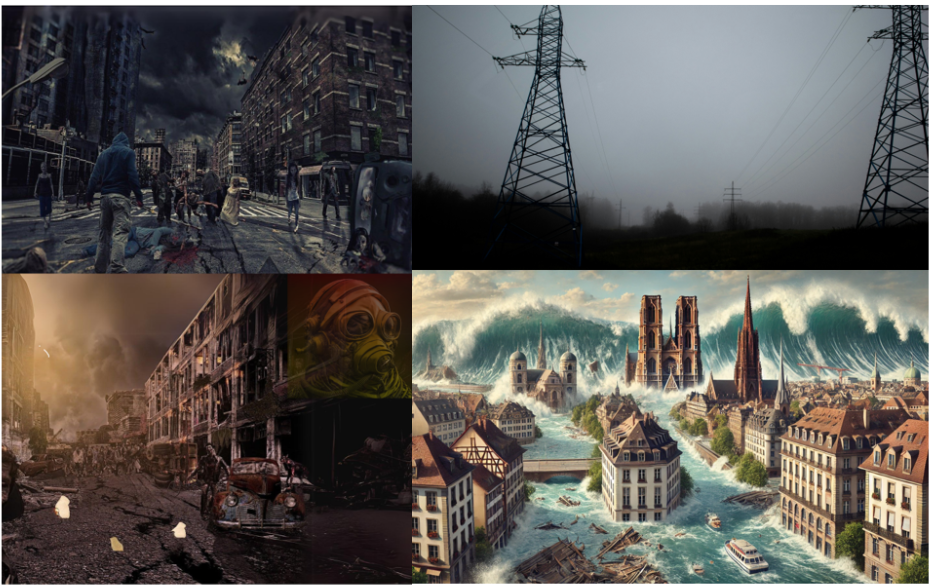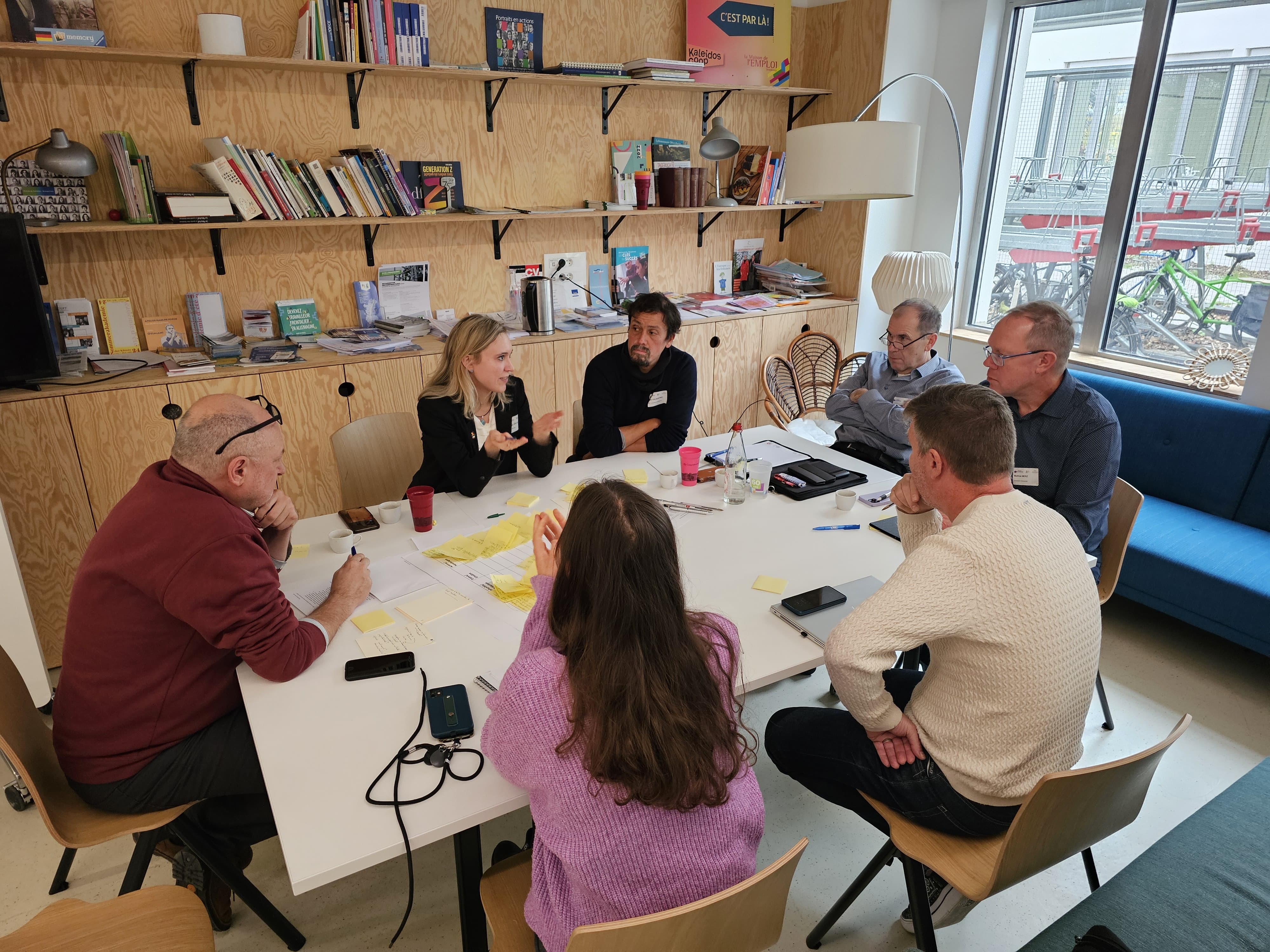Science-Fiction as a way to think the future
2 December 2024

The occurrence of crisis events in recent years in Europe and beyond has clearly demonstrated that municipalities are inadequately prepared for such extreme situations due to a lack of individual and organisational capacities, as well as personal and financial resources. This is particularly evident in the context of critical infrastructure and resources such as energy (production, storage and distribution). These two fields are closely interrelated, as mobility necessitates energy resources, which in turn require the utilisation of physical and information flows via infrastructure. In this regard, the climate crisis serves to heighten the probability of occurrence of extreme events. In this regard, the interrelated issues of mobility and energy represent a significant challenge for local authorities, particularly in the context of major disruptive events.
The use of foresight methods may facilitate local resilience with regard to these fields by providing vital information. In comparison to traditional foresight activities, narratives offer a relevant approach for municipalities. The use of narratives is a less costly approach than traditional methods based on inquiries and statistical analysis, both in financial and human resource terms. Adopting narratives allows the scope of investigation to be extended to a more distant future (e.g. post-2050) than traditional methods (mainly based on expert knowledge), particularly in the case of disruptive and unlikely events. Narratives may encourage a stronger involvement of the local population and, more generally, of civil society actors, since they may be easier to understand and communicate than traditional methods (exhibiting statistical elements). They are also more consistent as a systemic construct.

Co-developing science-fiction crisis scenarios: the “future café” approach
The IMMER Lab aims at strengthening the local resilience of mobility and energy-related activities in the cross-border Strasbourg-Kehl region. In the first phase of the project, several interviews with key stakeholder in the mobility and energy sector of the region have been conducted in order to identify first elements for better managing and targeting future crises.
After this round of interviews, key stakeholders of the lab (companies, the fluvial ports of Strasbourg and Kehl, energy producers, mobility operators and public authorities) have been invited to participate to a first workshop which has been framed as a “future café”. During this workshop, the participants co-developed three science-fiction crisis scenarios (total social collapse, long-term blackout, river tsunami) that will hit the territory by 2050. The plausibility of these scenarios is based in particular on the expected possible future crisis expressed by the stakeholders involved that could be identified after analysing the interviews conducted prior to the workshop.In particular, there are questions about the mid- and long-term stability of energy infrastructures and the mobility of goods and people.
During the workshop itself, the participants have been separated into three groups, each group consisting of a harmonised composition of German-/ French-speakers and public and private actors. In the beginning, each group has been allocated to a specific scenario. During the workshop, three “creation phases” were conducted each lasting to around 20 minutes. After each phase, the participant group went on to work on another scenario. This approach assured that each science-fiction crisis scenario has been equally co-developed by each participant. In the first phase, participants were asked to develop the scenario by discussing the question: What is happening in 2050 when the crisis hits (imagine the immediate consequences)? In the following phase the participants went a year further: What is the situation in 2051, one year later (imagine the medium-term impact)? The scenarios have been finalised during the third creation phase. In this phase, the participants travelled back in time to the near future of 2025 (What should be decided in 2025 to minimise the negative impact?). There, the participants already drafted the first actions that could be taken in 2025 to mitigate and to prepare for these extreme crisis scenarios.
After a first initial evaluation of the actions proposed, several actions could be identified that are common to each scenario:
- Implementation of crisis simulation/ training exercises to prepare to extreme events at all levels of stakeholders
- Preparation/ sensibilization activities, such as a "digital-free week" or computer-free days in companies
- Decentralized energy production infrastructures, redundancy of energy systems, diversification of energy supply sources
- Increase investment in local initiatives: strengthen crisis management capabilities at local level (decentralize decision-making processes)
- Strengthening knowledge management regarding crisis (cross-border exchange of best practices, robust data bases on the local level)
- Promote self-sufficiency and strengthen the ability of communities to survive and prosper in difficult conditions (dissemination of knowledge)
- Using robust, autonomous communication technologies, such as satellite communication networks or low-power radio systems, portable solar generators and long-life batteries
As a result, the participants have been provided with a report that compiled all jointly developed science-fiction crisis scenarios as a full text.

Analysing the possible futures or what we can learn now from future events
In the following workshop that has recently taken place in Strasbourg, the participants undertook an in-depth analysis of the scenarios by using a TOSA-matrix (Threats, Opportunities, Stakes, Actions). A first evaluation of the results demonstrates clearly that even though the crisis scenarios are different, the determining factors and needed actions are similar throughout the scenarios. In the upcoming months, the IMMER Lab will evaluate the TOSA-matrixes for each scenario by investigating the concrete similarities and differences between the scenarios.
Finally, for the last workshop, community-building exercises with the respective private and public actors are envisaged in order to increase local resilience in relation to energy and mobility issues. The results of the evaluation of the TOSA-matrixes will be incorporated in these reflections.
Login to add a new comment